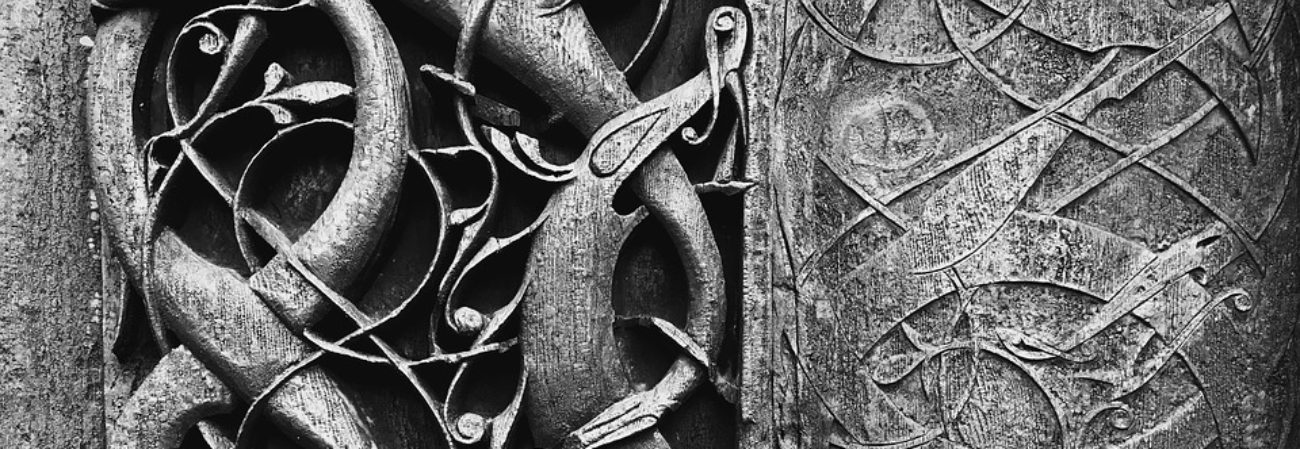 Henbane (Hyoscyamus niger) has an interesting and varied past. On the one hand it has been used in medicine. The Byzantine physician, Paul of Aegina (625 – 690) used a decoction of henbane mandrake, opium, and wine as an anesthetic before surgery. In any case, henbane was well know throughout Europe and not just for magic. It was an effective poison. Some say second only to aconite in the poisoners’ arts. Etymologically, henbane has nothing to do with hens at all. In old English, hen had to do with death and in fact, the plant was once called henbell.
Henbane (Hyoscyamus niger) has an interesting and varied past. On the one hand it has been used in medicine. The Byzantine physician, Paul of Aegina (625 – 690) used a decoction of henbane mandrake, opium, and wine as an anesthetic before surgery. In any case, henbane was well know throughout Europe and not just for magic. It was an effective poison. Some say second only to aconite in the poisoners’ arts. Etymologically, henbane has nothing to do with hens at all. In old English, hen had to do with death and in fact, the plant was once called henbell.
It is probably associated with witchcraft more than any other plant. A very important Norsewoman, likely a volva or Seihdkona was found in a rich burial in Fyrkat Denmark. Among her grave good was a pouch containing the seeds henbane and cannabis, both with mind-altering properties. However it is the henbane that has been associated with the sensation of flying that it gave to witches who used it. Often it was combined with mandrake, datura and nightshade, themselves all highly toxic plants. Even henbane petals rubbed against the skin have been reported to have caused an experience akin to floating of flying.
Every party of henbane contains alkaloids such as scopolamine, hyoscyamine, and atropine. The seeds are slightly less toxic, which is why the lady of Fyrkat may have been carrying those in her pouch for magic work and not compounds of the deadlier part of the plant.
Safe to say, henbane was as well known to the Byzantines as it was to the Norse. Prior to the use of hops, it was used in brewing beer. It still is to this day. It is called Pilsenkraut Among the Byzantines as stated above, was used in medicine. There can be no doubt it was favored by both when it came time to rid oneself of a particularly obnoxious enemy.
One was always wise to taste carefully anything proffered by anyone that one could not altogether trust, as Sven does in The Serpentine Key:
Sven waited until the chamberlain took a sip and then he too took a tiny sip of the wine testing it on his tongue for any sign of bitterness of henbane or the throat tingling that was said to come with aconite. It did not taste of poison, but then he knew plenty of artful concoctions that were tasteless and odorless. One did not long reside in the Imperial City without a good education of the mixtures that were at the disposal of the poisoners’ arts. He took a slightly larger sip. It had a faint note of oak. The former chamberlain detected his appreciation of it. “That is a fine wine. My nephew has confiscated my lands and my wealth, but I still have a modest allotment of the wines from my vineyards brought to me weekly by boat. This, however, is foreign wine, from the Negev. I am to be treated like a member of the imperial family in my libations, it seems, if not my habitation.” He settled himself in the chair and closed his eyes, as if nothing else mattered except this wine.
“Did the last emperor have such fine wine before he died?” Sven commented acerbically.
“You wound me. I had no hand in the death of the Emperor John. Some say he dug his own grave with too much food and too much drink. It was no doing of mine. Indeed, even thought I knew whose hand was in it, I would not have stayed it. He was far too eager to halt my climb to power. Still,” and he chuckled “It would be an amusing joke, would it not, for me to assassinate the assassin?” He plucked a grape from the bowl and chewed on it thoughtfully. “I do have poison at hand however. I kept it for my own use, should my exile prove to be too unbearable. If you are to kill me, I would prefer that you poison me. Knives and such make an extraordinary mess.”
We have no evidence to link the Imperial Chamberlain Basilios Lakepenos with any of the deaths around him. But as a powerful man with much to lose, he might have been quite willing to turn to poison to eliminate his equally powerful enemies.
Sources: An Analytical Dictionary of the English Etymology, an Introduction by Anatoly Liberman
Writer’s Guide to Poisons
Big Bad Book of Botany by Michael Largo
Vikingaliv (Viking Lives) by Dick Harrison and Kristina Svensson
